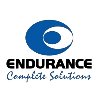Filter interviews by
Tata Marcopolo Motors Assistant Manager Process Engineering Interview Questions and Answers
Tata Marcopolo Motors Assistant Manager Process Engineering Interview Experiences
1 interview found
I applied via Recruitment Consultant and was interviewed before Nov 2018. There was 1 interview round.
Interview Questionnaire
11 Questions
- Q1. Tell about yourself
- Q2. What are your current company roles and responsibilities?
- Q3. Tell us what you know about TMML
- Q4. What do you mean by process engineering
- Ans.
Process engineering involves designing, optimizing, and improving industrial processes to increase efficiency and productivity.
Process engineering focuses on the design, optimization, and improvement of industrial processes.
It involves analyzing data, identifying bottlenecks, and developing solutions to increase efficiency and productivity.
Process engineers work in a variety of industries, including manufacturing, chem...
- Q5. How do you design a process for any given product
- Ans.
Designing a process for a product involves analyzing the product requirements, identifying the necessary steps, and optimizing the process for efficiency and quality.
Analyze product requirements and specifications
Identify necessary steps and materials
Determine optimal process flow and equipment
Consider safety, quality, and efficiency
Test and refine the process as needed
Document the process for future reference
- Q6. What are your strengths and weaknesses
- Q7. And then deep technical queries
- Q8. First telephonic, called for couple of f2f technical rounds and then HR interview
- Q9. After three weeks received a call
- Q10. And then offer was provided
- Q11. Negotiations
Interview Preparation Tips
Top trending discussions






Interview questions from similar companies

Assistant Manager Process Engineering Interview Questions & Answers
UNO Mindaposted on 24 Feb 2025
I appeared for an interview in Aug 2024.
(6 Questions)
- Q1. Tell me about your self, your experience, your education & family background.
- Ans.
I am a highly experienced process engineer with a strong educational background and a supportive family.
I have over 10 years of experience in process engineering, working on various projects in the manufacturing industry.
I hold a Bachelor's degree in Chemical Engineering from XYZ University.
My family has always been supportive of my career choices and has encouraged me to pursue my passion for engineering.
I have comple...
- Q2. Type of Projects you handled.
- Ans.
I have handled a variety of projects including process optimization, automation implementation, and new product development.
Process optimization to improve efficiency and reduce costs
Automation implementation to streamline operations
New product development from concept to production
Cross-functional projects involving multiple departments
Continuous improvement initiatives to enhance quality and productivity
- Q3. Methodology you are use or you have use to tackle the problem, improvements.
- Ans.
I use a combination of root cause analysis, process mapping, and continuous improvement techniques to tackle problems and drive improvements.
Utilize root cause analysis to identify underlying issues
Create process maps to visualize current processes and identify areas for improvement
Implement continuous improvement techniques such as Lean Six Sigma to drive efficiencies
Collaborate with cross-functional teams to gather i
- Q4. Your strength and weakness.
- Ans.
Strength: Strong problem-solving skills. Weakness: Difficulty delegating tasks.
Strength: Able to analyze complex problems and come up with effective solutions.
Weakness: Struggle with delegating tasks to others, often feeling like it's easier to do things myself.
Strength: Proven track record of successfully implementing process improvements in previous roles.
Weakness: Sometimes have difficulty prioritizing tasks and can...
- Q5. Manpower direct report to you.
- Q6. Total number of cost saving project.
- Ans.
I have led and implemented a total of 15 cost saving projects in my previous role.
Implemented process improvements resulting in 10% cost reduction in manufacturing
Introduced new supplier negotiation strategies leading to 15% cost savings in procurement
Optimized inventory management system resulting in 20% reduction in carrying costs
(2 Questions)
- Q1. Current Package.
- Q2. Your expections
Interview Preparation Tips
Your current achievement in terms of courses as well saving that you have had your current organization.
Internet connection during virtual interview.
Don't tell on which you don't have commend.

I applied via Referral and was interviewed in Sep 2020. There were 3 interview rounds.
Interview Questionnaire
2 Questions
- Q1. Tell me about your self
- Q2. About me which is not in resume
Interview Preparation Tips

I applied via Walk-in and was interviewed before Sep 2020. There were 4 interview rounds.
Interview Questionnaire
1 Question
- Q1. Self introduction and basics of industrial culture, about the previous company experience
Interview Preparation Tips
And choose the industry and department based on your experience and knowledge.

I appeared for an interview before Jan 2022.

(2 Questions)
- Q1. Self introduction its very important
- Q2. Subject Questions Technical Questions
Interview Preparation Tips
research about company, speak clearly

(1 Question)
- Q1. Need to know about subros

I applied via Recruitment Consultant and was interviewed in Sep 2021. There was 1 interview round.
Interview Questionnaire
3 Questions
- Q1. Shop floar and trouble shooting
- Q2. Kaizen, poka yoke, oee ,reduce ppm
- Q3. Smed project
Interview Preparation Tips

I appeared for an interview in Jan 2022.

(2 Questions)
- Q1. Why should we hire you?
- Q2. Tell me about yourself.
Interview Preparation Tips
I am working on subros ltd
9.6 years old
Present time my role is production shift inches rotor machining and shaft line.


(1 Question)
- Q1. On resume production engineering
Interview Preparation Tips
And manpower handling

I applied via Campus Placement and was interviewed in Aug 2024. There were 2 interview rounds.
(3 Questions)
- Q1. Tell me about your self
- Ans.
I am a dedicated and experienced Production Engineer with a strong background in manufacturing processes and quality control.
Bachelor's degree in Mechanical Engineering
5+ years of experience in production engineering
Proficient in CAD software and manufacturing processes
Implemented lean manufacturing principles to improve efficiency
Led cross-functional teams to troubleshoot production issues
- Q2. You're worked here
- Q3. Job and responsibilities
(5 Questions)
- Q1. Cnc vmc program
- Q2. SAP(BOM, production punch)
- Q3. 7qc tool details
- Q4. 5 core tools (spc, MSA, Ppap)
- Q5. Production document (dwm, dd20, 5m change, tl activity
Interview Preparation Tips
- Self introduction
- Technical
- TPM Methodology
- MS Office
- SAP
- CNC Programming
- VMC Programming
- Machine Setting
- English Language
Tata Marcopolo Motors Interview FAQs
Some of the top questions asked at the Tata Marcopolo Motors Assistant Manager Process Engineering interview -
Tell us how to improve this page.
Tata Marcopolo Motors Interviews By Designations
- Tata Marcopolo Motors Production Supervisor Interview Questions
- Tata Marcopolo Motors Production Engineer Interview Questions
- Tata Marcopolo Motors Management Trainee Interview Questions
- Tata Marcopolo Motors Assistant Manager Interview Questions
- Tata Marcopolo Motors Engineering Manager Interview Questions
- Tata Marcopolo Motors Project Manager-Production/Manufacturing/Maintenance Interview Questions
- Tata Marcopolo Motors Assistant Manager Process Engineering Interview Questions
- Tata Marcopolo Motors Deputy Manager Production Interview Questions
- Show more
Interview Questions for Popular Designations
- Process Engineer Interview Questions
- Head Engineering Interview Questions
- Engineering Intern Interview Questions
- Process Engineer Trainee Interview Questions
- Engineering Assistant Interview Questions
- General Manager Engineering Interview Questions
- Chemical Process Engineer Interview Questions
- Graduate Apprentice Trainee Interview Questions
- Show more
Interview Questions from Similar Companies

|
Assistant Manager
82
salaries
| ₹4 L/yr - ₹9 L/yr |
|
Design Engineer
46
salaries
| ₹2 L/yr - ₹6.4 L/yr |
|
Quality Engineer
41
salaries
| ₹1.8 L/yr - ₹3.6 L/yr |
|
Production Engineer
40
salaries
| ₹2.4 L/yr - ₹6.1 L/yr |
|
Deputy Manager
37
salaries
| ₹7.5 L/yr - ₹13.7 L/yr |

JBM Group

Ceat Tyres

Subros

UNO Minda
- Home >
- Interviews >
- Tata Marcopolo Motors Interview Questions >
- Tata Marcopolo Motors Assistant Manager Process Engineering Interview Questions










